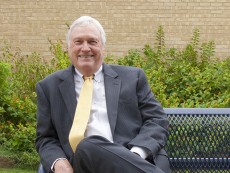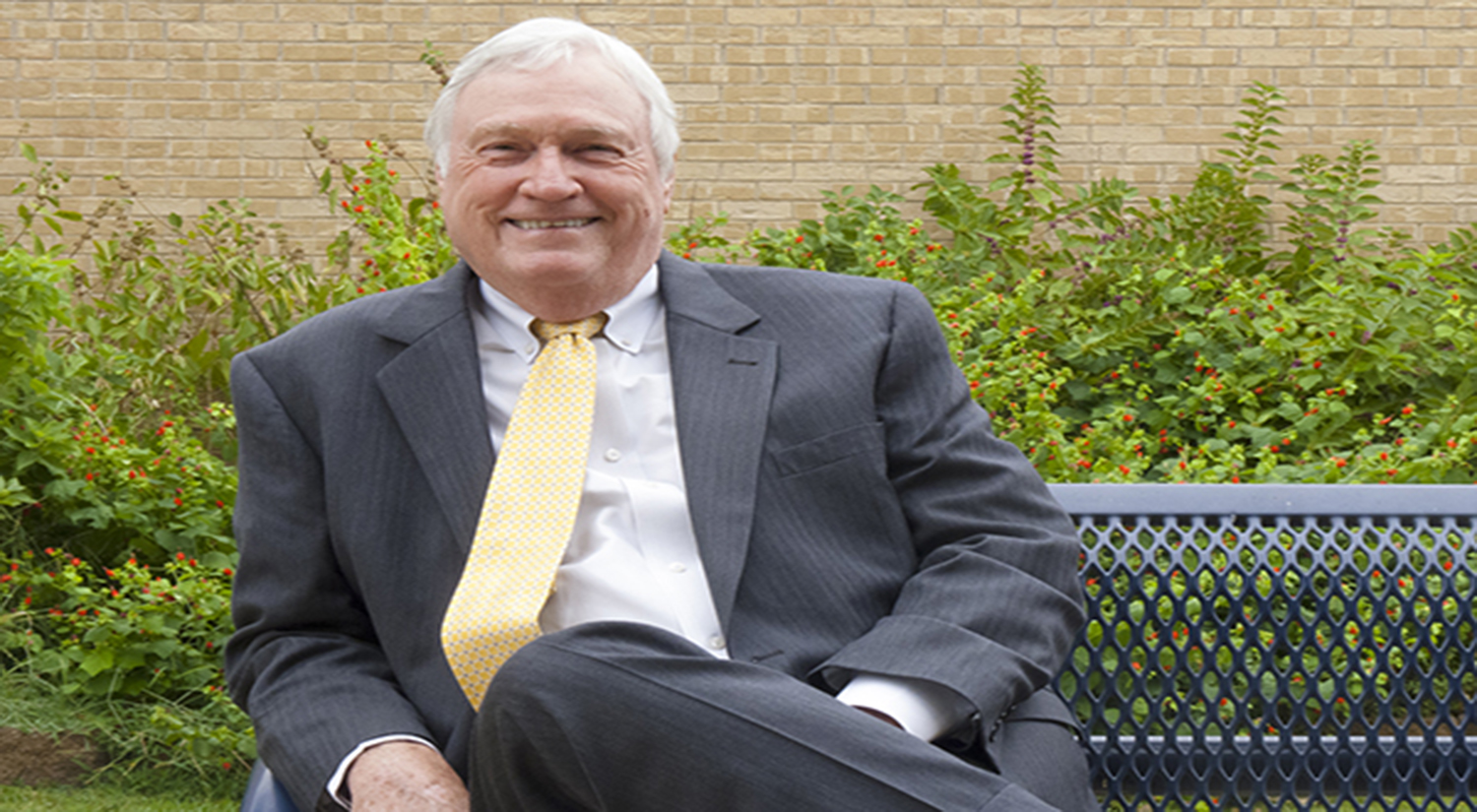By Hope Sandusky/editor-in-chief
When asked what he will miss the most about TCC, Gary Smith says it will be the people.
“The thing you remember with any job the most is the people,” he said. “You don’t remember the meetings, the arguments, the paperwork. It’s the people. I wish I could take them home with me.”

Photo by Hope Sandusky/The Collegian
Smith has been with TCC for 48 years, starting as a teacher and working his way to NE vice president of academic affairs.
NW vice president of student developmental services Joe Rode remembers Smith as being dedicated to anything he worked on.
“I have served on a number of committees with him, and I can attest to his passion for ‘getting it right’ even if that required being the champion for an issue all by himself,” he said. “He is a dedicated teacher who I believe had to be convinced that he should leave the classroom and join the administrative team.”
Smith attests to that, saying his favorite thing about working at TCC was students.
“I liked students. I thought they were funny,” he said. “My favorite thing was to see students grow academically and change their worldviews and perspectives. Especially when I taught the Cornerstone program, you’d have students that were a little more naïve and unsure and by the end, even if their beliefs hadn’t changed, they were more open-minded. My happiest memories were when students would come back and visit after they had left and they’d tell me what they were doing with their lives. That was very rewarding.”
Business and social sciences dean Linda Wright says that academics were always a priority for Smith.
“Gary is a scholar and always cultivated the highest of academic standards among his faculty and his students,” she said. “Even as he moved through the ranks of administration, he continued to be an advocate for faculty and students.”
Smith can remember when the college wasn’t so big, saying the most significant change for the school has been size.
“We’ve gotten bigger substantially, probably more so than we initially thought,” he said. “As you get bigger, there are more layers. As there are more layers, it’s harder to get things done. The biggest change has been the movement toward standardization across the campuses so as to focus on the district, not each campus. The campuses have less autonomy.”
Smith said that standardization inhibited the campuses from expressing their individuality.
“Standardization makes sense for administration, but I would argue the classroom doesn’t need it,” he said. “That should be where the individuality and creativity of each teacher is allowed to come through.”
Smith believes that the standardization is so engrained though that a change, while needed, would be hard to make happen.
“In terms of administration, it makes things more complicated [for faculty],” he said. “In terms of academics, it means less freedom.”
Smith says he enjoyed the early years of the college when everyone worked together.
“I was there when South and NW opened and came when NE was new. People were a team, and they loved the college. We’d sit around when we had a problem and would talk about how we each could contribute to solve it. Now, it’s all about defending territory, thinking about how it affects me, not everyone else. Everyone has their own agenda now. We’ve quit thinking as a team.”
Smith has mixed emotions leaving but says he won’t miss the paperwork his job involved.
“I hate paperwork,” he said. “Let’s get together, talk about it and go out and do it.”

